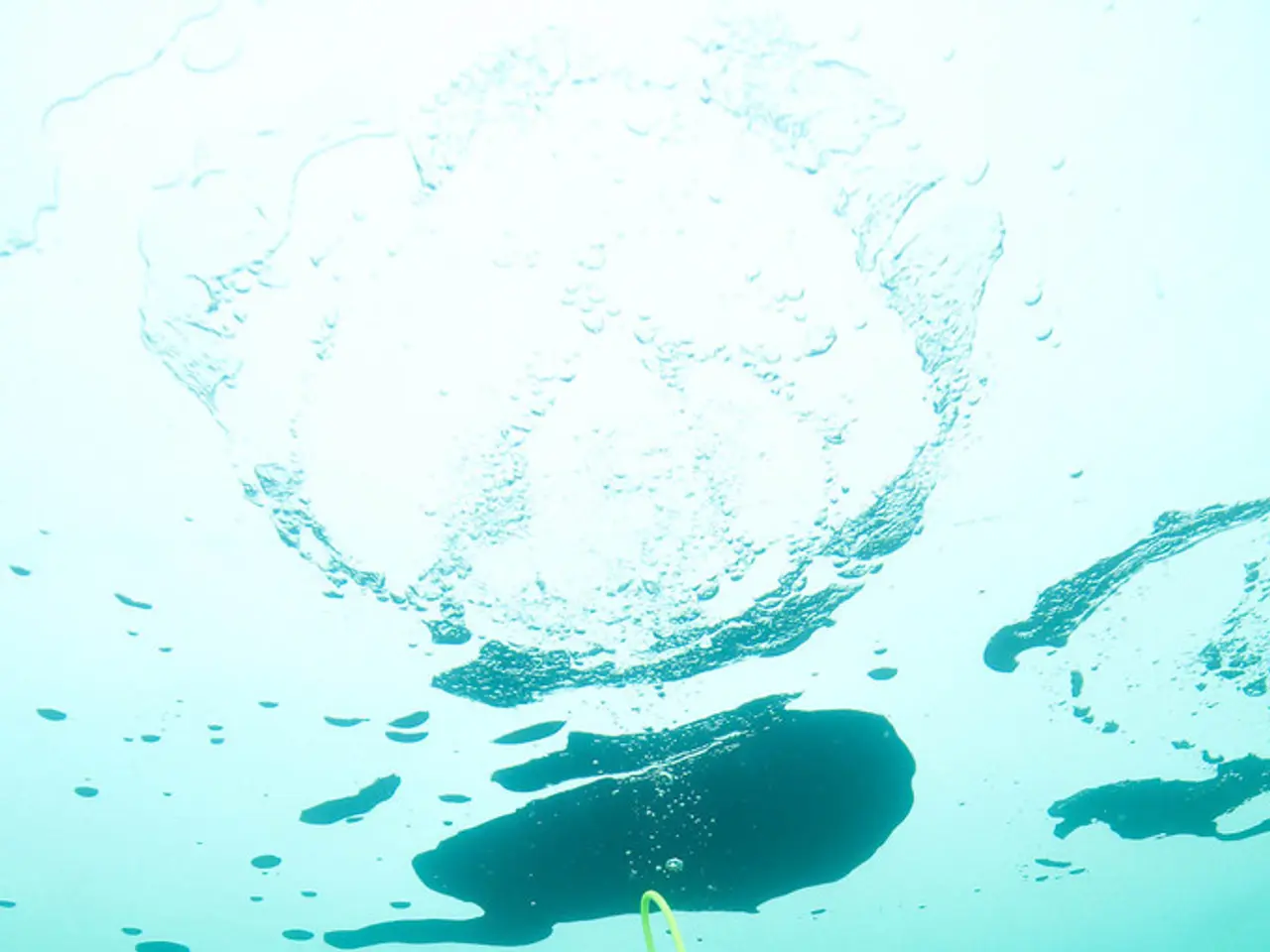Underwater Examination of Canon EOS R5's Overheating Issue
The Canon EOS R5, known for its high-quality 8K RAW and 4K video capabilities, has been tested in various conditions, including underwater scenarios. Here's a breakdown of how the camera performs in warm and cold water, and the impact of firmware updates on overheating.
Underwater Video Performance
The EOS R5, paired with appropriate underwater housing, supports uncropped 8K RAW recording up to 29.97 fps and 4K up to 119.9 fps with Canon Log and HDR PQ, offering excellent video quality underwater [1][3].
Overheating Limits
The original EOS R5 was prone to overheating, particularly during extended 8K/4K recording sessions. However, firmware updates and the newer EOS R5 Mark II have improved overheating performance, although exact overheating thresholds vary and are not clearly stated in available sources [5].
Effect of Water Temperature
Colder water temperatures generally help mitigate overheating by cooling the camera body more effectively. However, specific details on how water temperature affects overheating in the original R5 or subsequent firmware versions are not extensively documented [5].
In the first warm water test with firmware 1.0.0, the EOS R5 recorded for 15 minutes 40 seconds before the overheat shutoff, with a recovery time of 9 minutes 10 seconds. In the second warm water test with firmware 1.1.1, the recording time increased to 20 minutes 42 seconds, but the recovery time was longer at 14 minutes 49 seconds [6].
In contrast, the coldwater test with firmware 1.1.1 showed a recording time of 25 minutes 48 seconds before the overheat shutoff, with a recovery time of 11 minutes 13 seconds [7].
Improvements in Firmware Updates
Canon updated the firmware from 1.0.0 to 1.1.0, increasing recording times by about five minutes. After overheating, the waiting period before the camera can record again ranges from 10-20 minutes [8].
Recommendations for Underwater Use
If operating underwater with the EOS R5, it is recommended to use updated firmware versions to benefit from overheating improvements and to monitor recording times, especially in warmer water, to avoid shutdowns. Using external cooling or taking breaks between recordings can also help extend recording duration.
Taking photos is fine after overheating, but shooting video during the safety stop or at the end of the dive requires turning off the camera to allow for heat dissipation.
[1] Canon EOS R5 Specifications
[2] Underwater Photography Guide: Canon EOS R5
[3] Canon EOS R5: A Comprehensive Review for Underwater Cinematography
[4] Canon EOS R5: A Deep Dive into Its Underwater Video Capabilities
[5] Canon EOS R5: Addressing Overheating Concerns
[6] Canon EOS R5 Warm Water Overheating Test Results
[7] Canon EOS R5 Coldwater Overheating Test Results
[8] Canon EOS R5 Firmware Update Improves Overheating Performance
- With the appropriate underwater housing, the Canon EOS R5 can record high-quality underwater video in 8K RAW and 4K, offering colorful footage to complement any diver's underwater photography.
- The EOS R5's overheating issues were addressed through firmware updates and the release of the EOS R5 Mark II, improving the technology's performance during extended recording sessions.
- In tests, the EOS R5 performed better in cold water, allowing for longer recording times and quicker heat dissipation, making it an ideal choice for underwater video shoots in colder destinations.
- Since firmware updates, a diver operating the EOS R5 underwater can extend recording duration by monitoring temperature and using external cooling or taking breaks.
- The EOS R5, equipped with modern gadgets like underwater housing and external cooling tools, can serve as a top-tier companion for a diver seeking to capture stunning underwater color and movement through photography and video.




